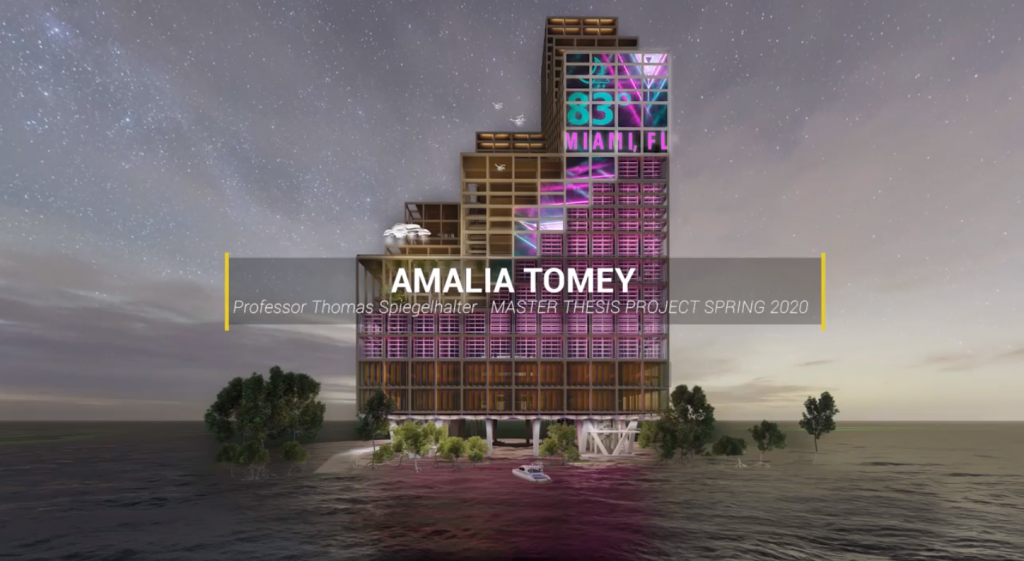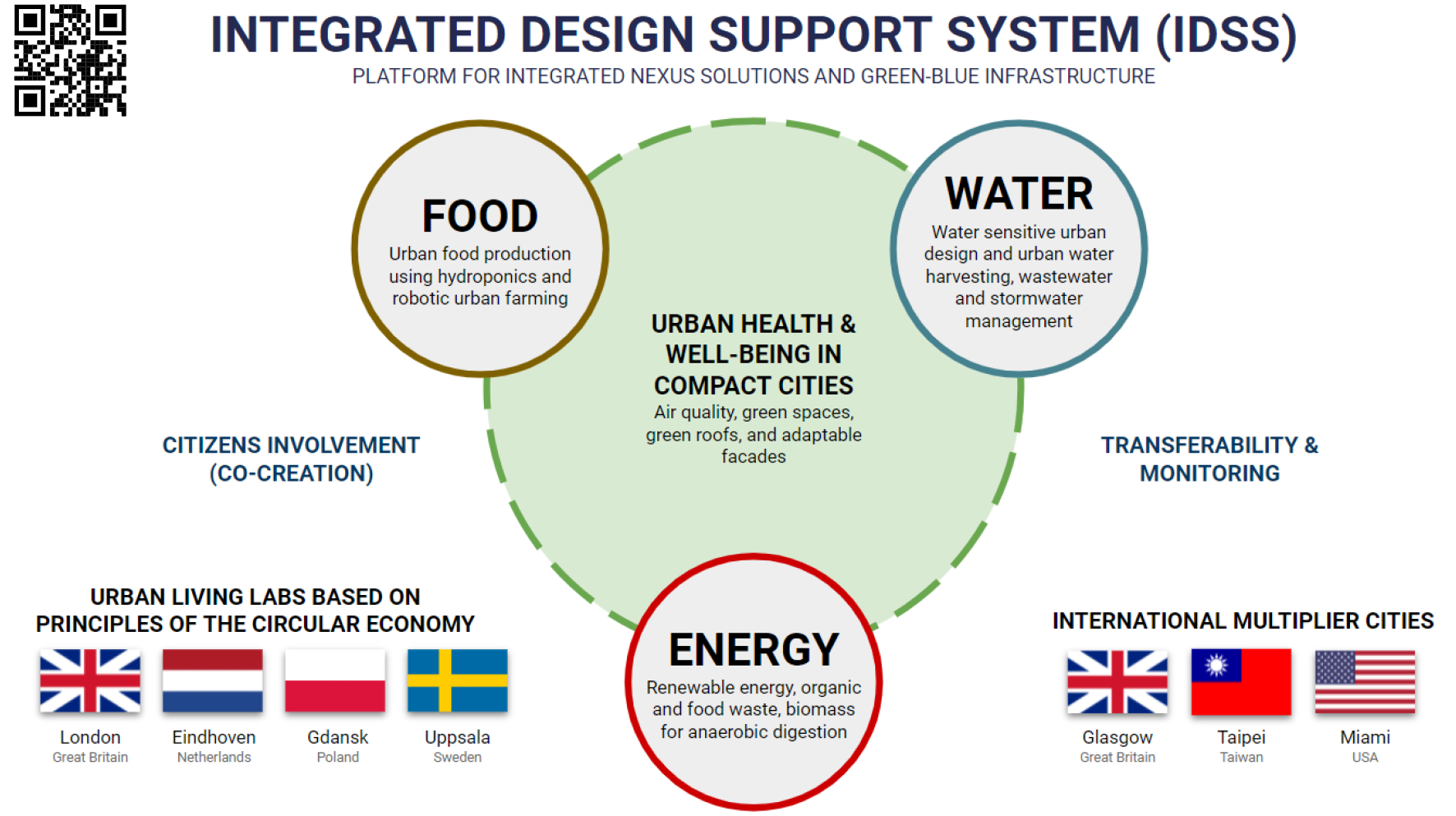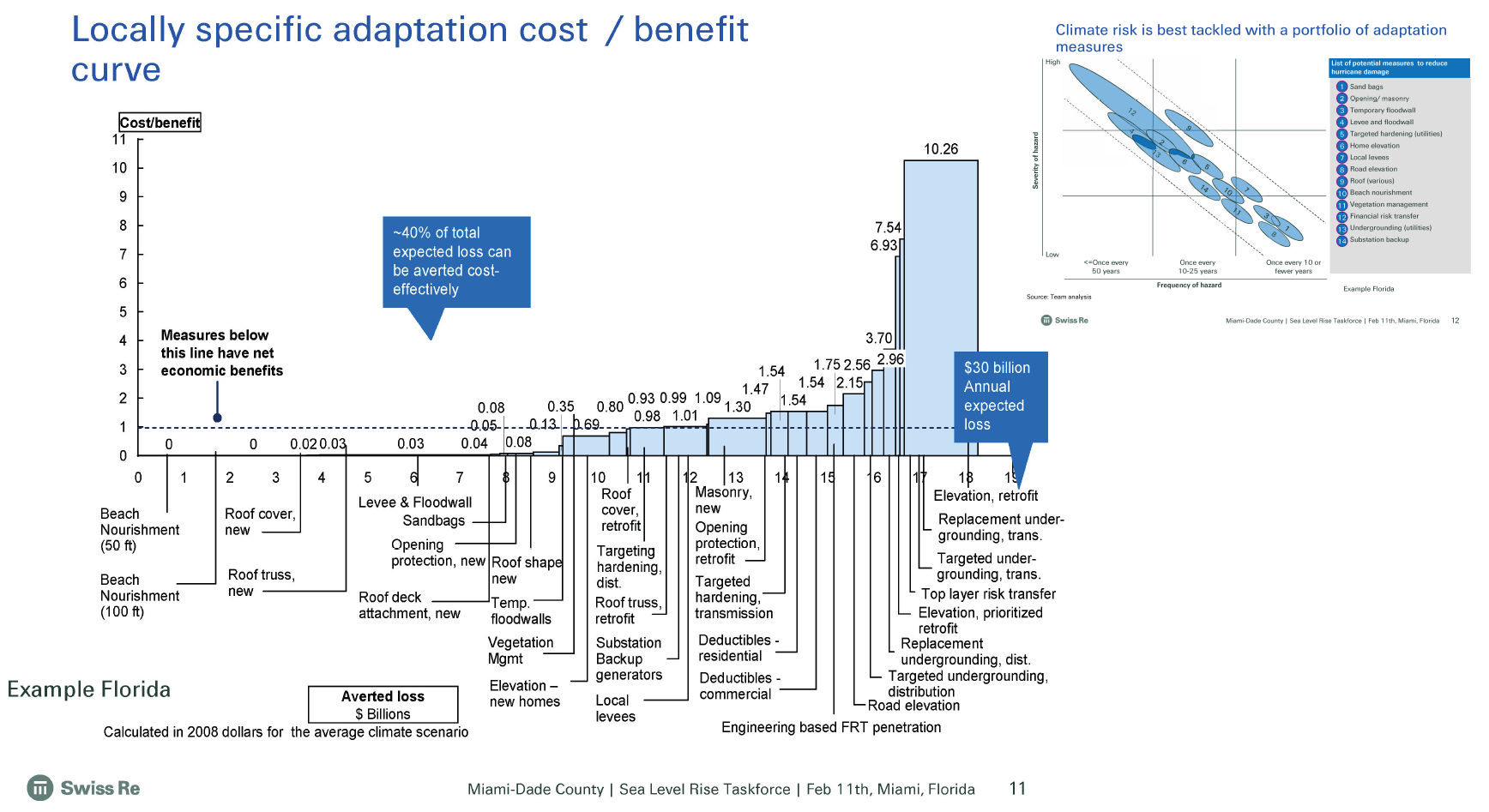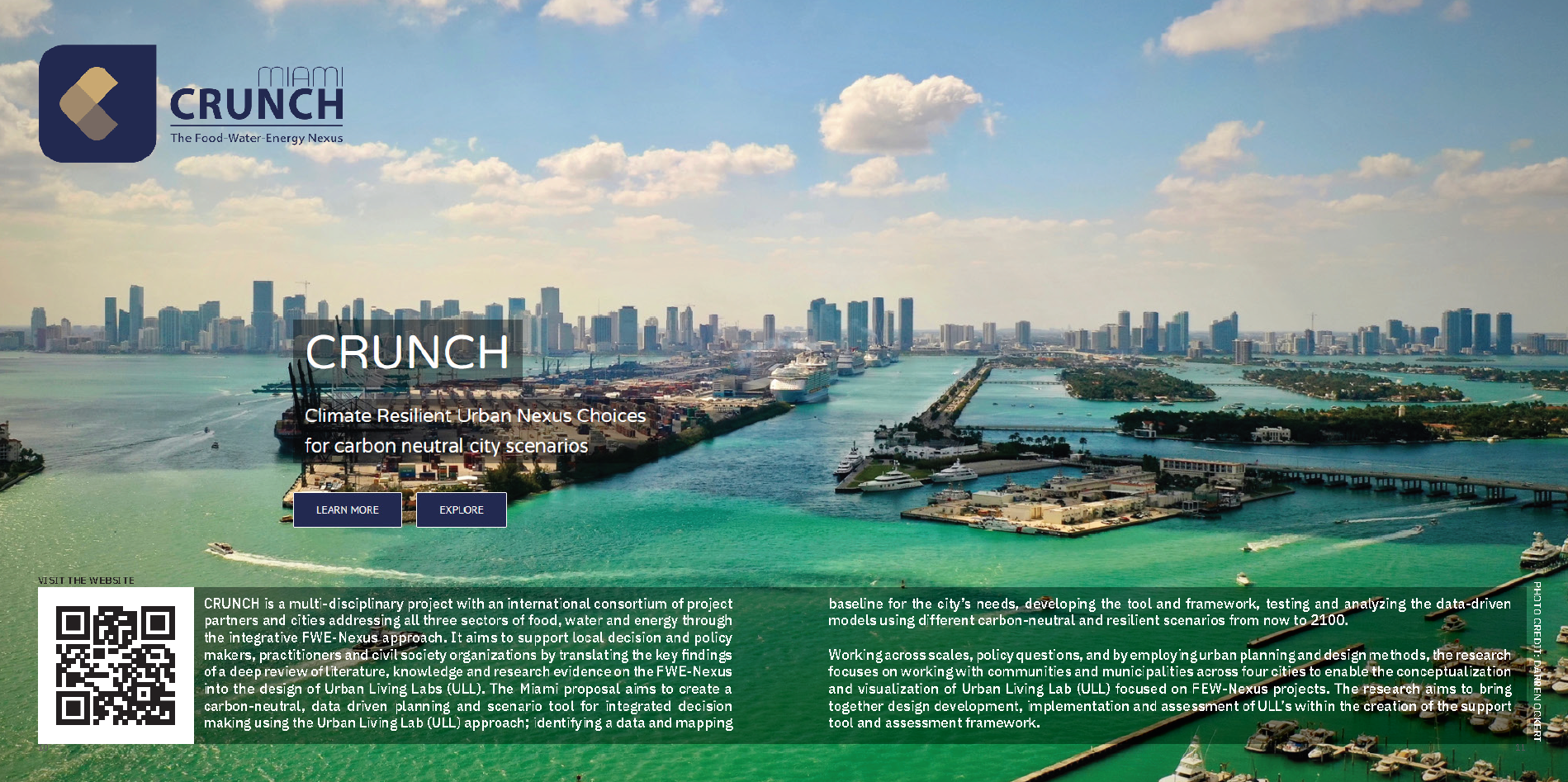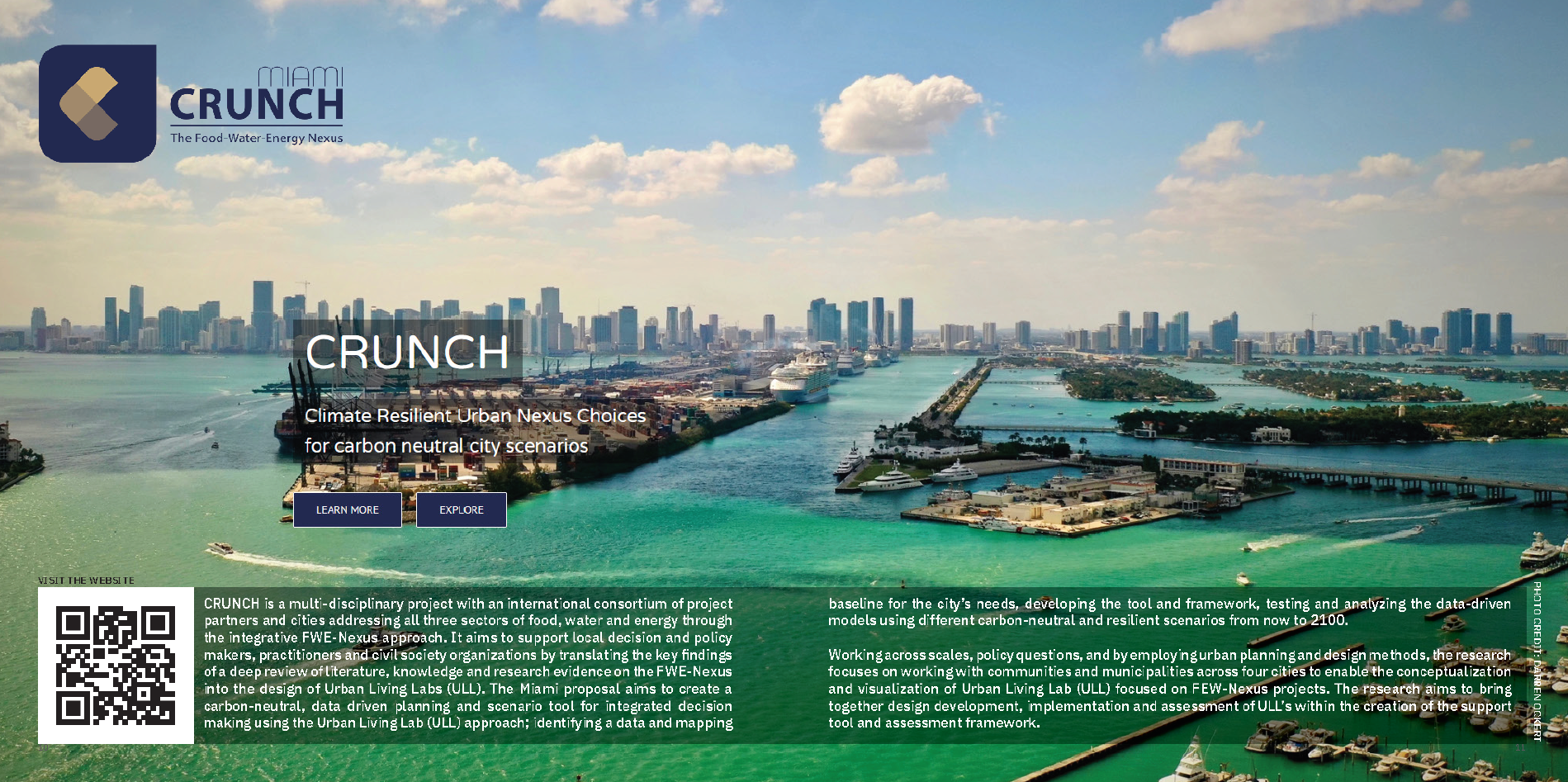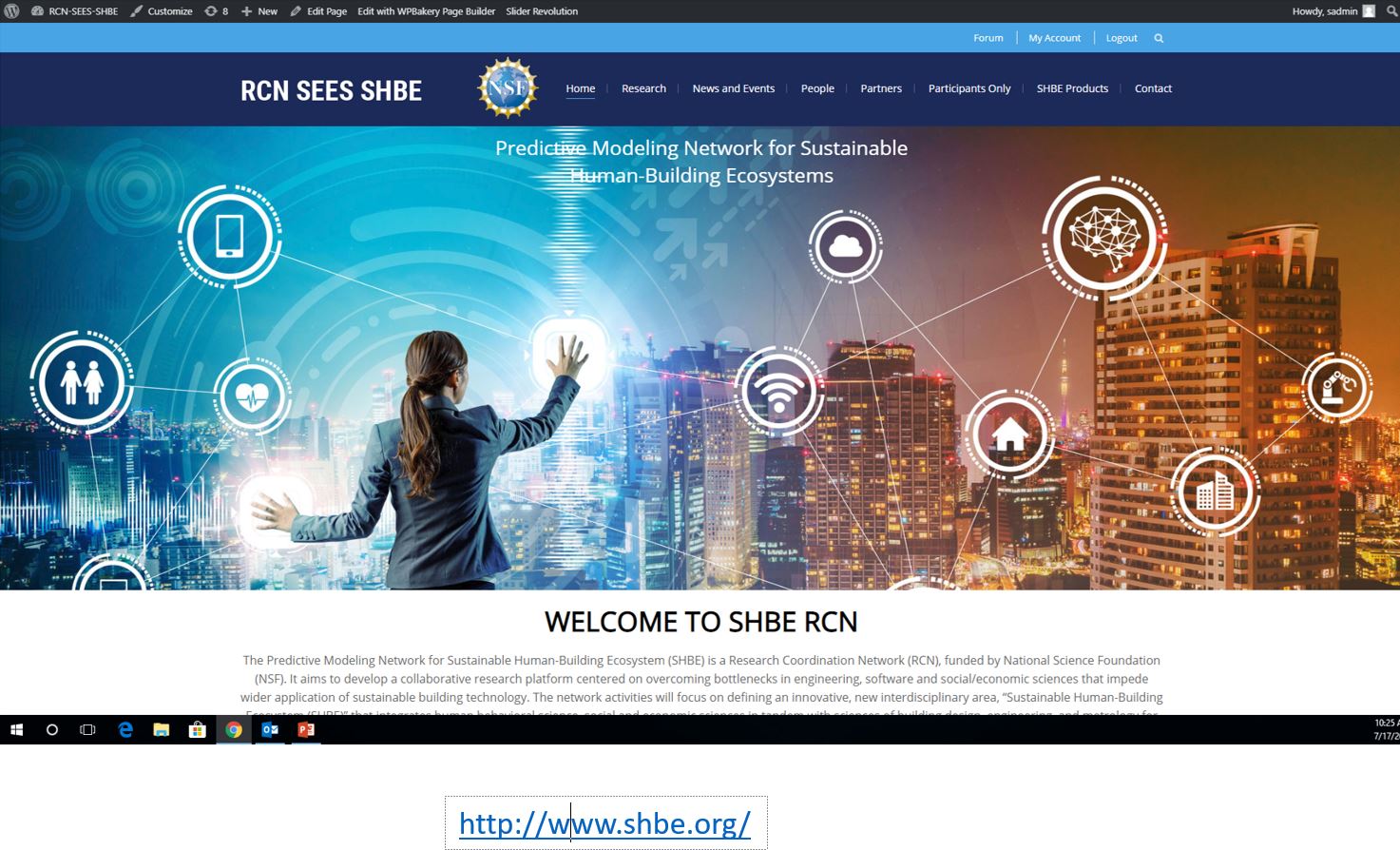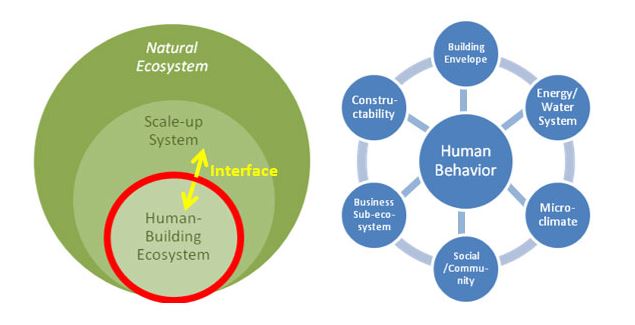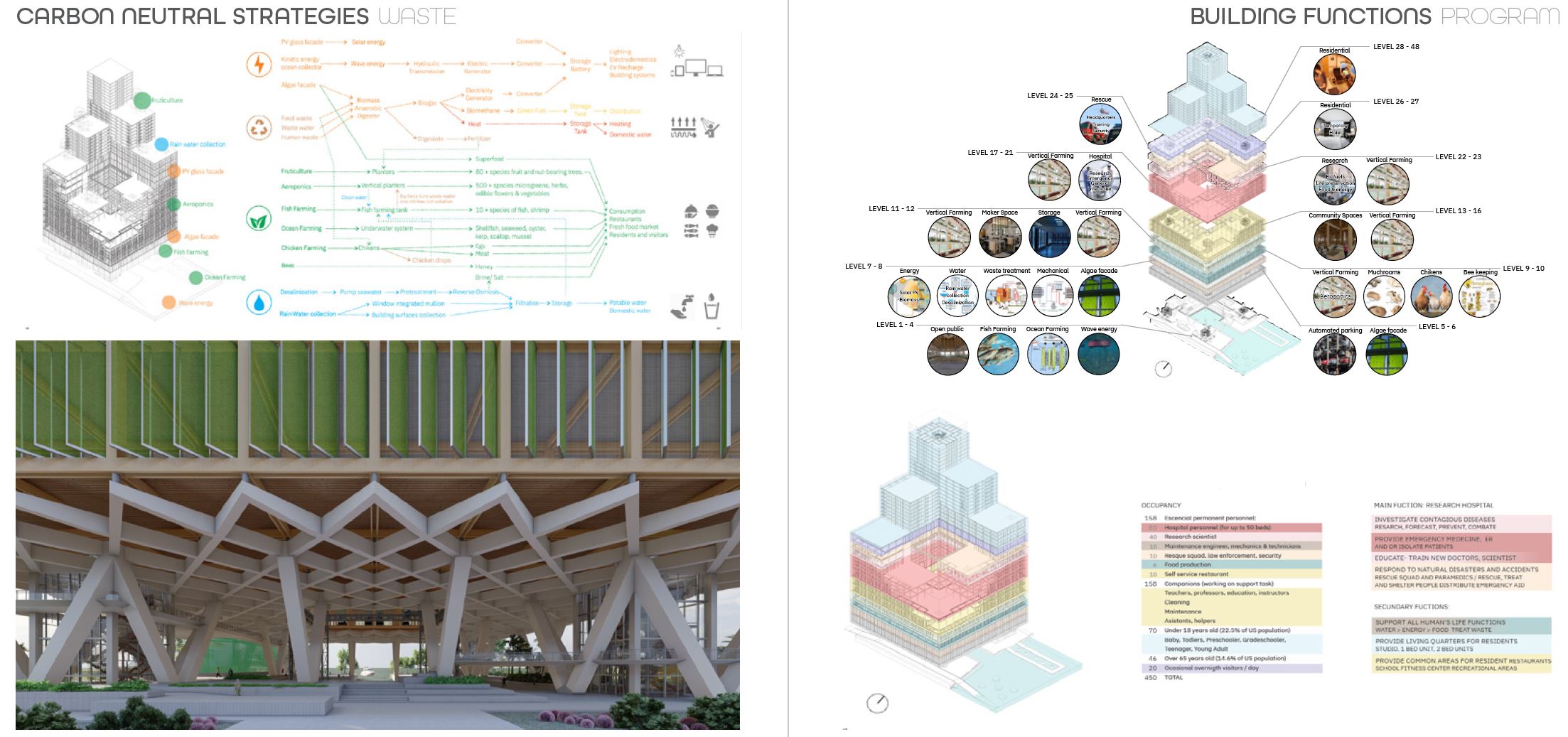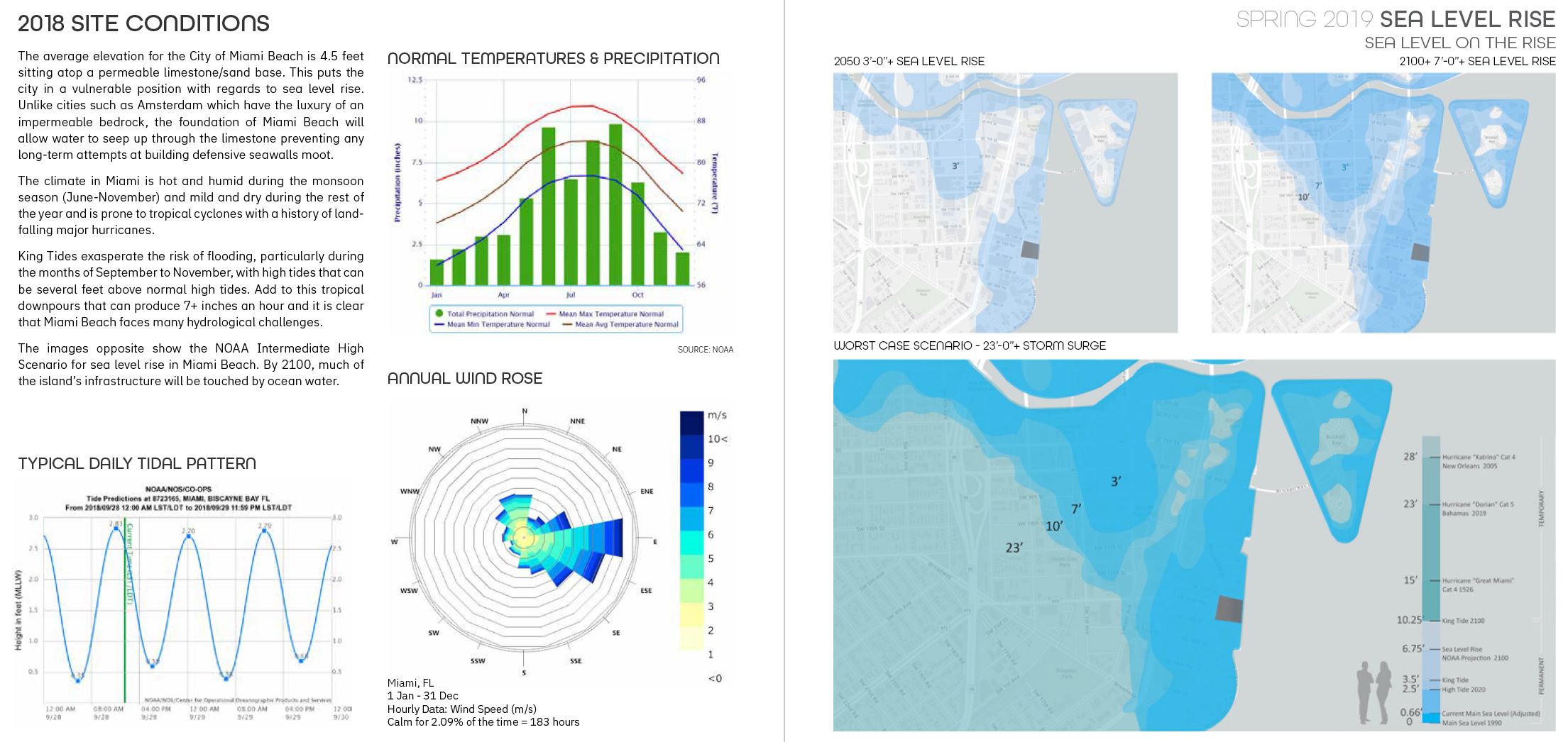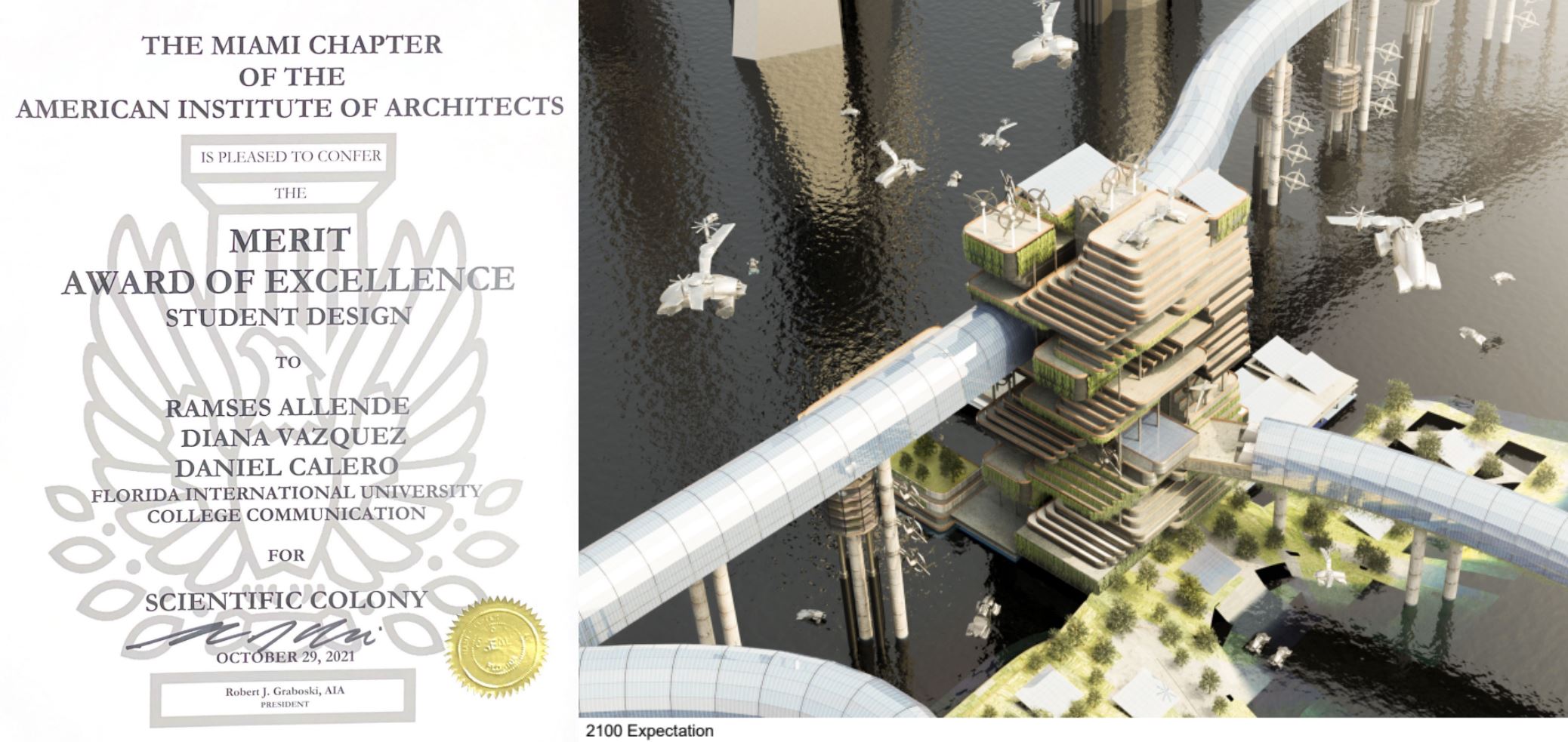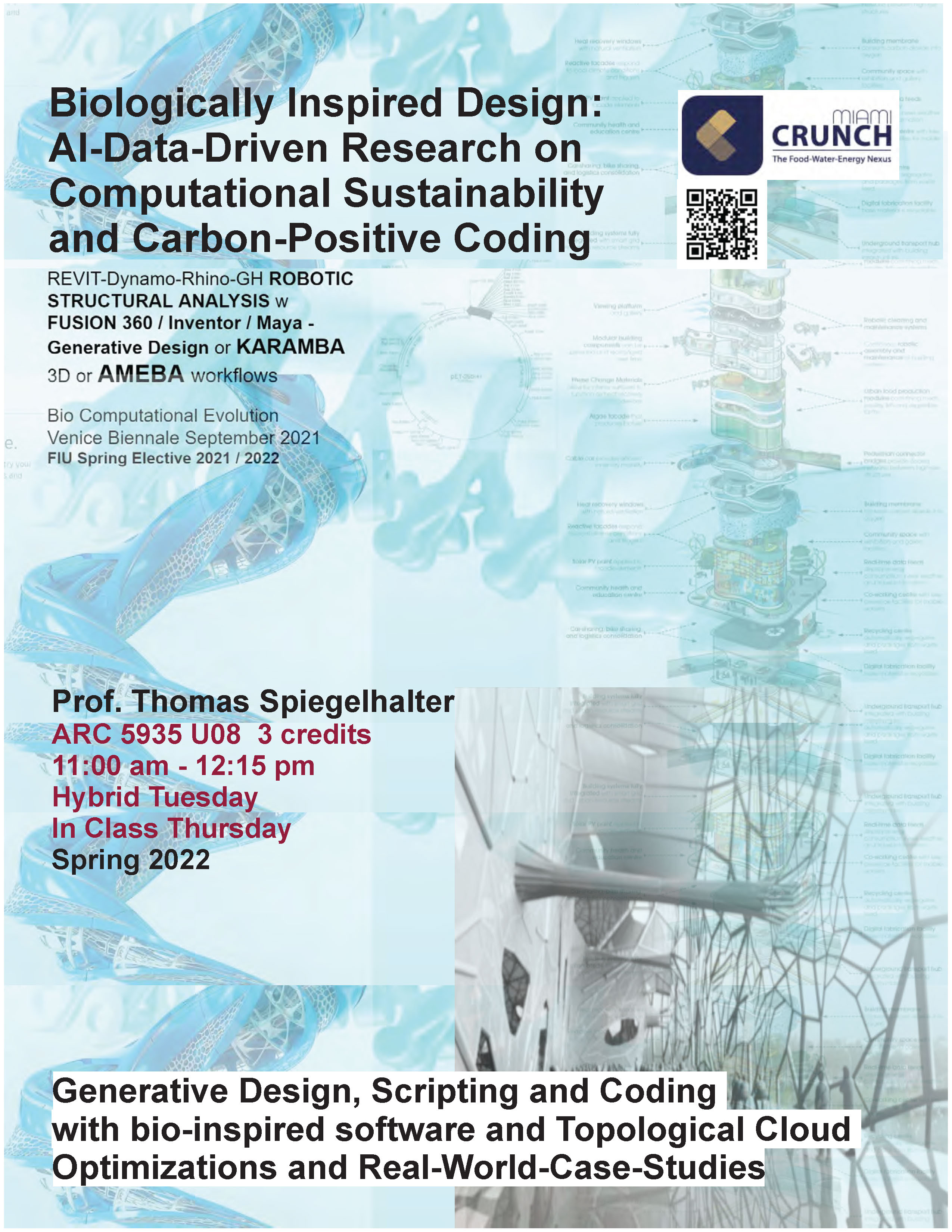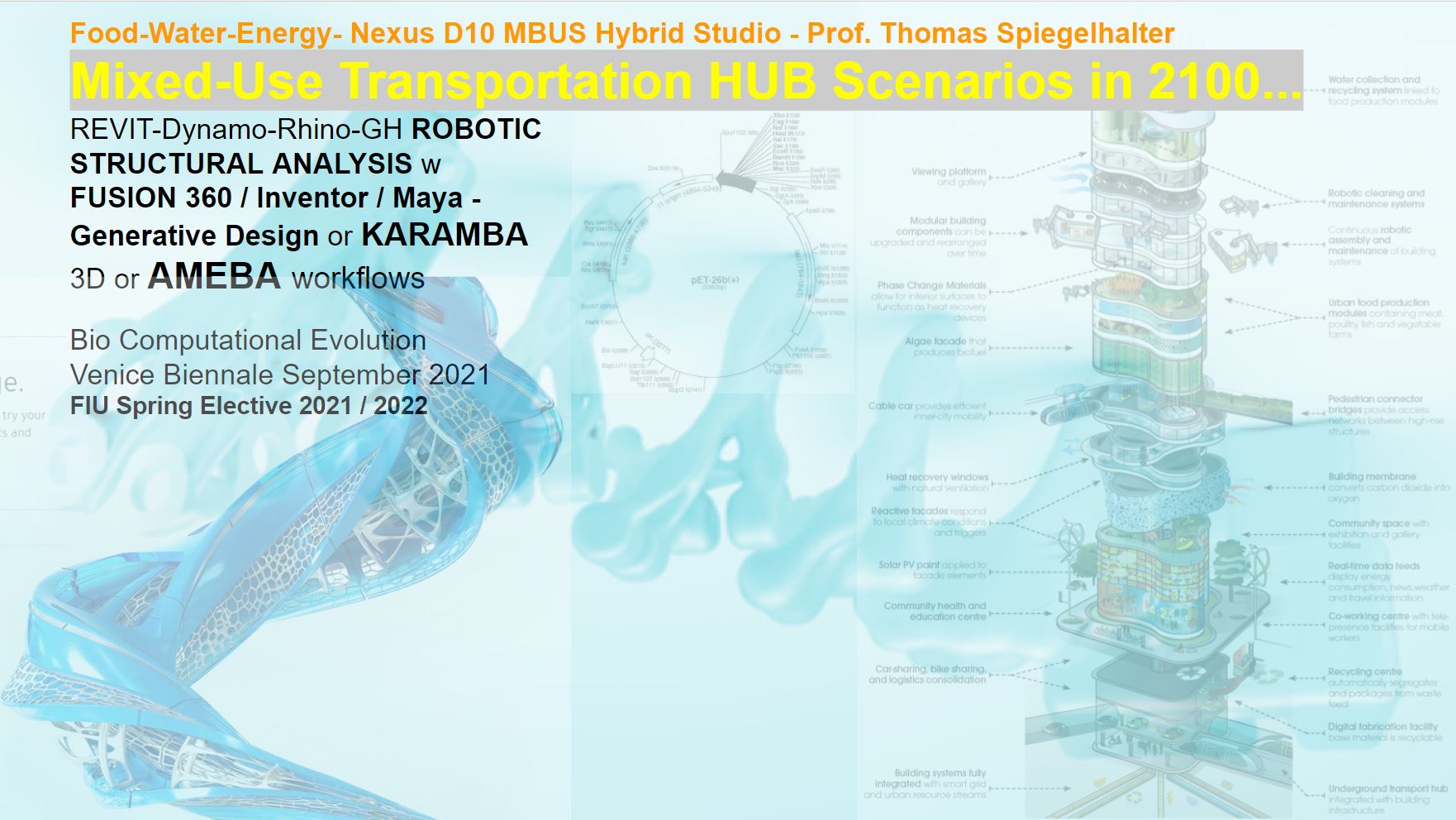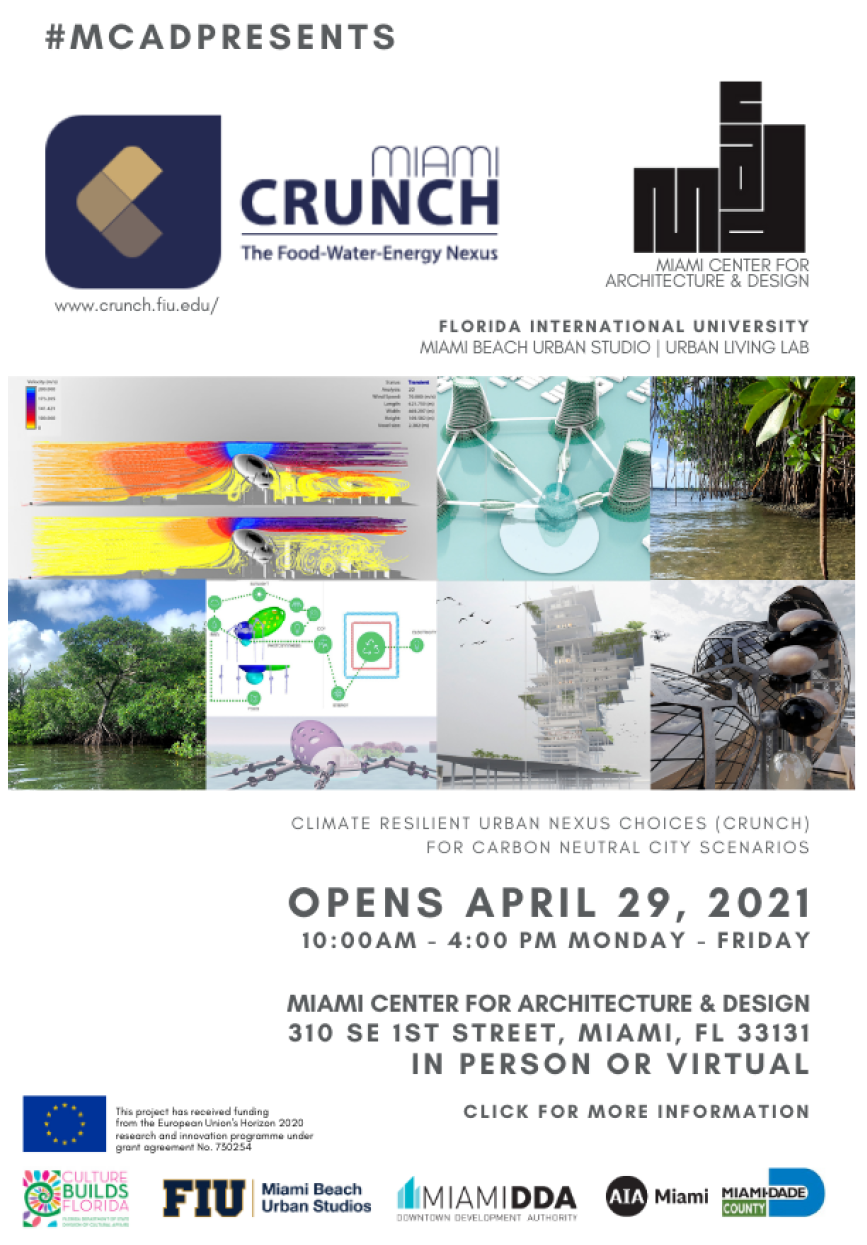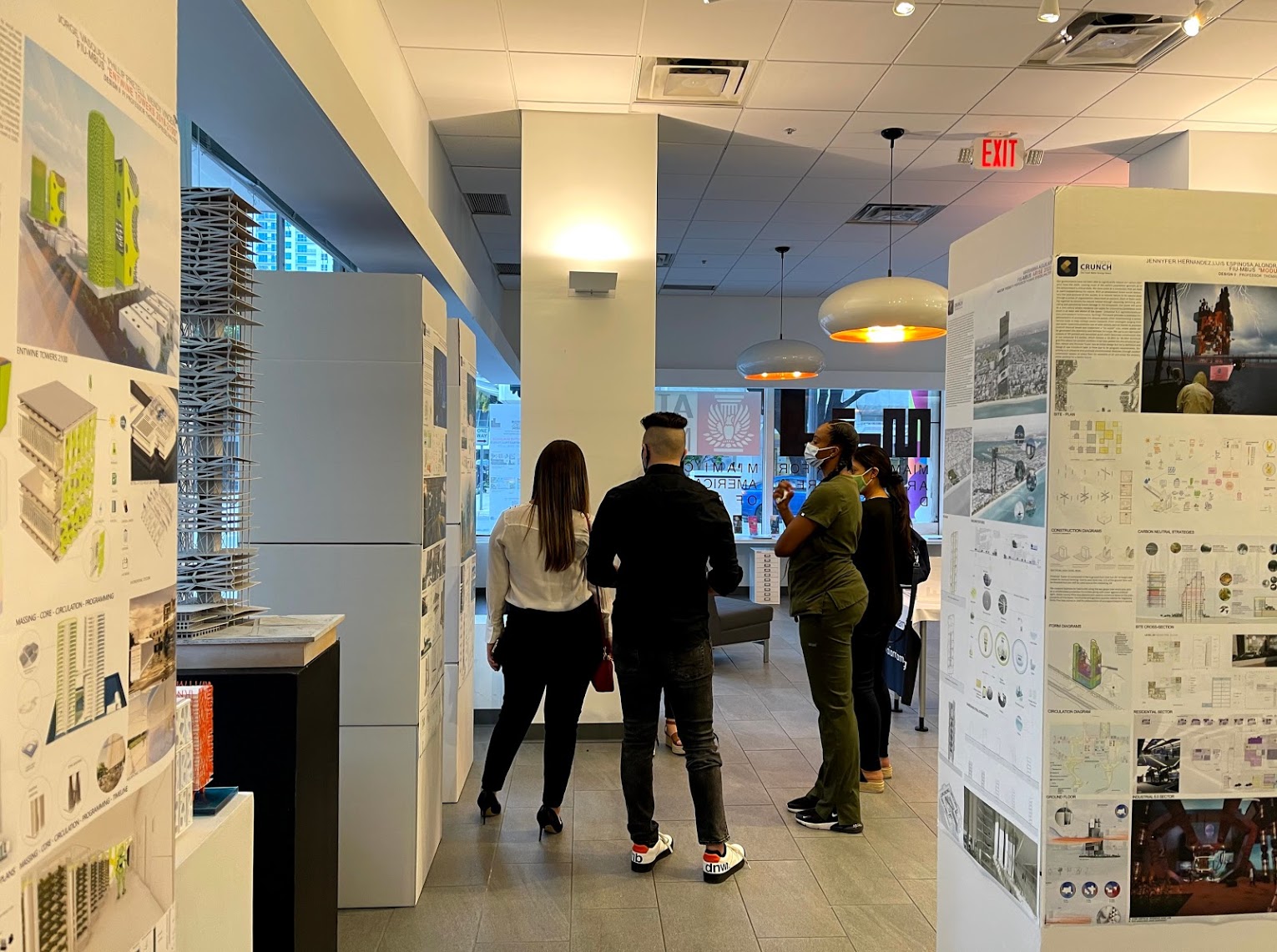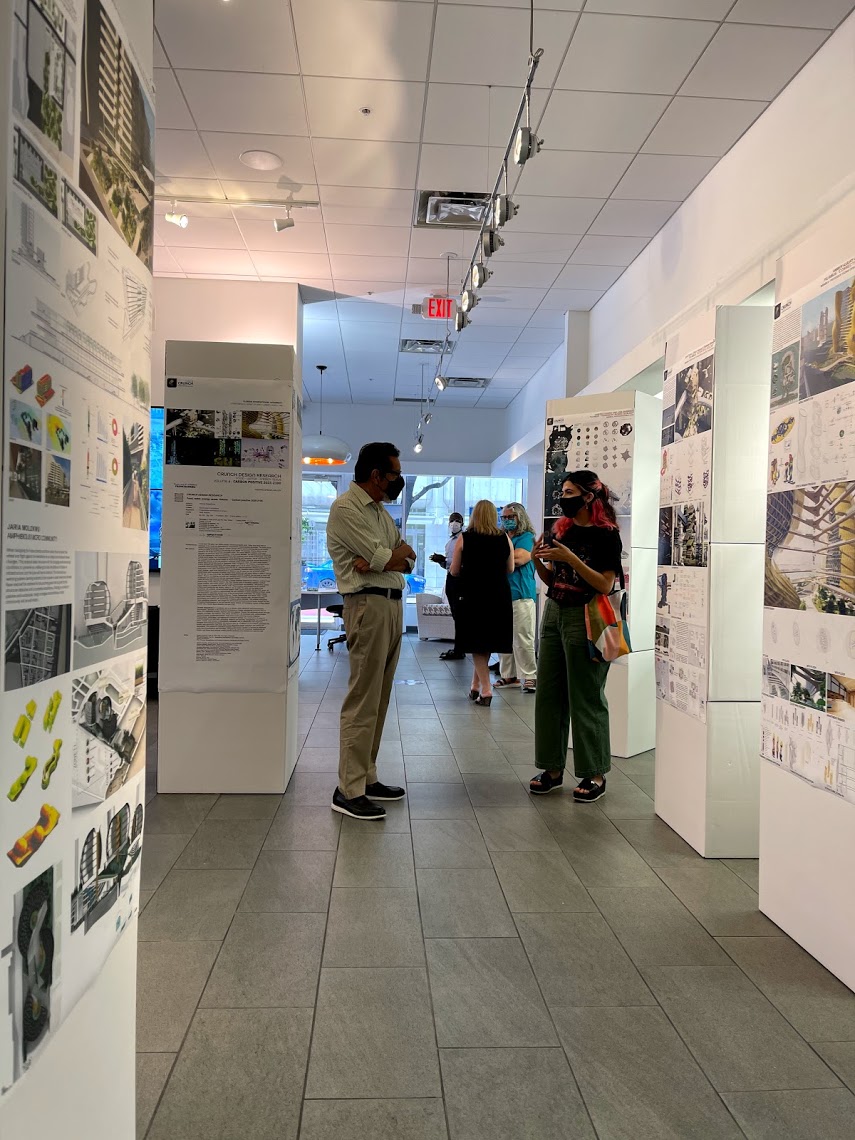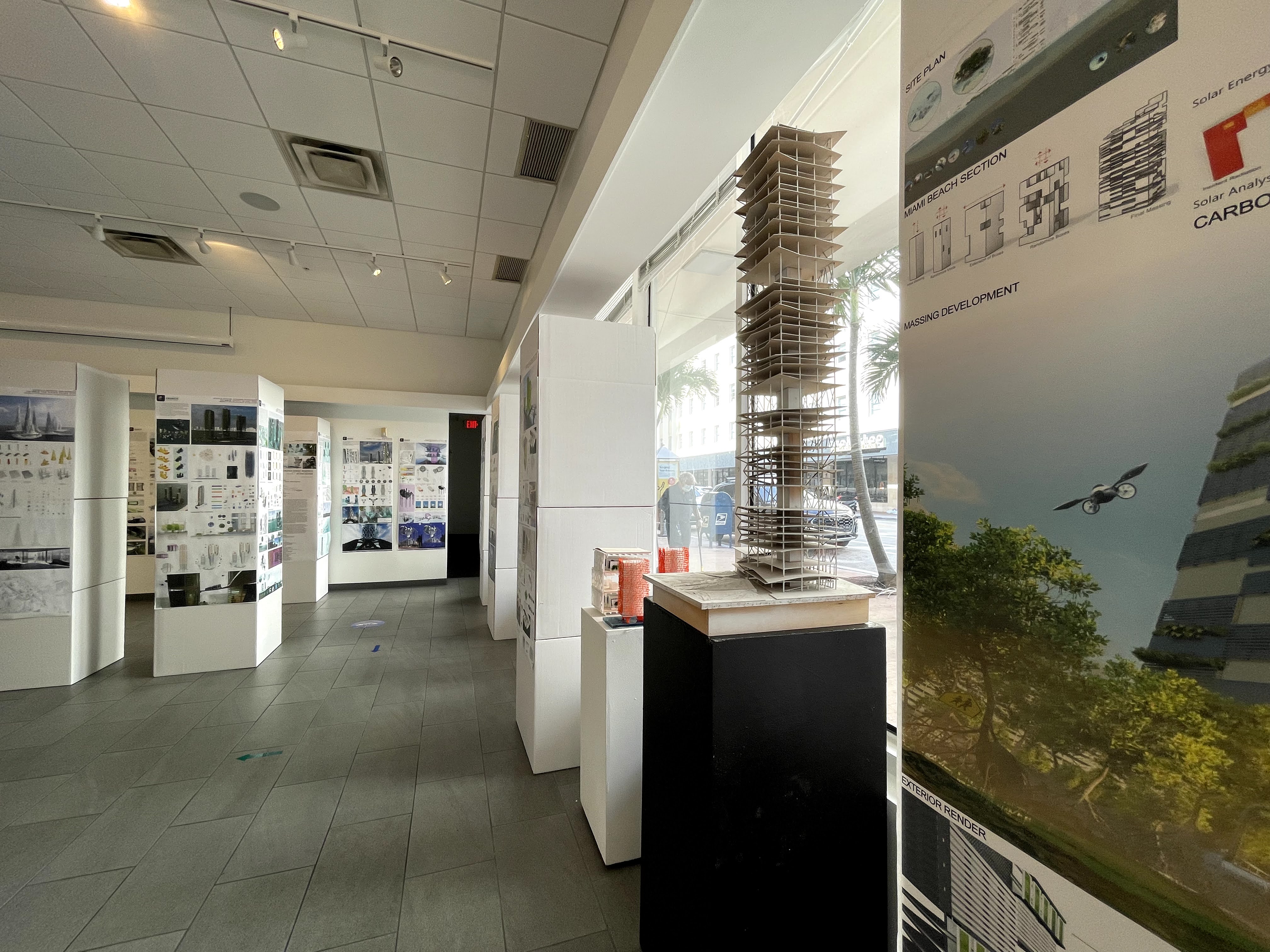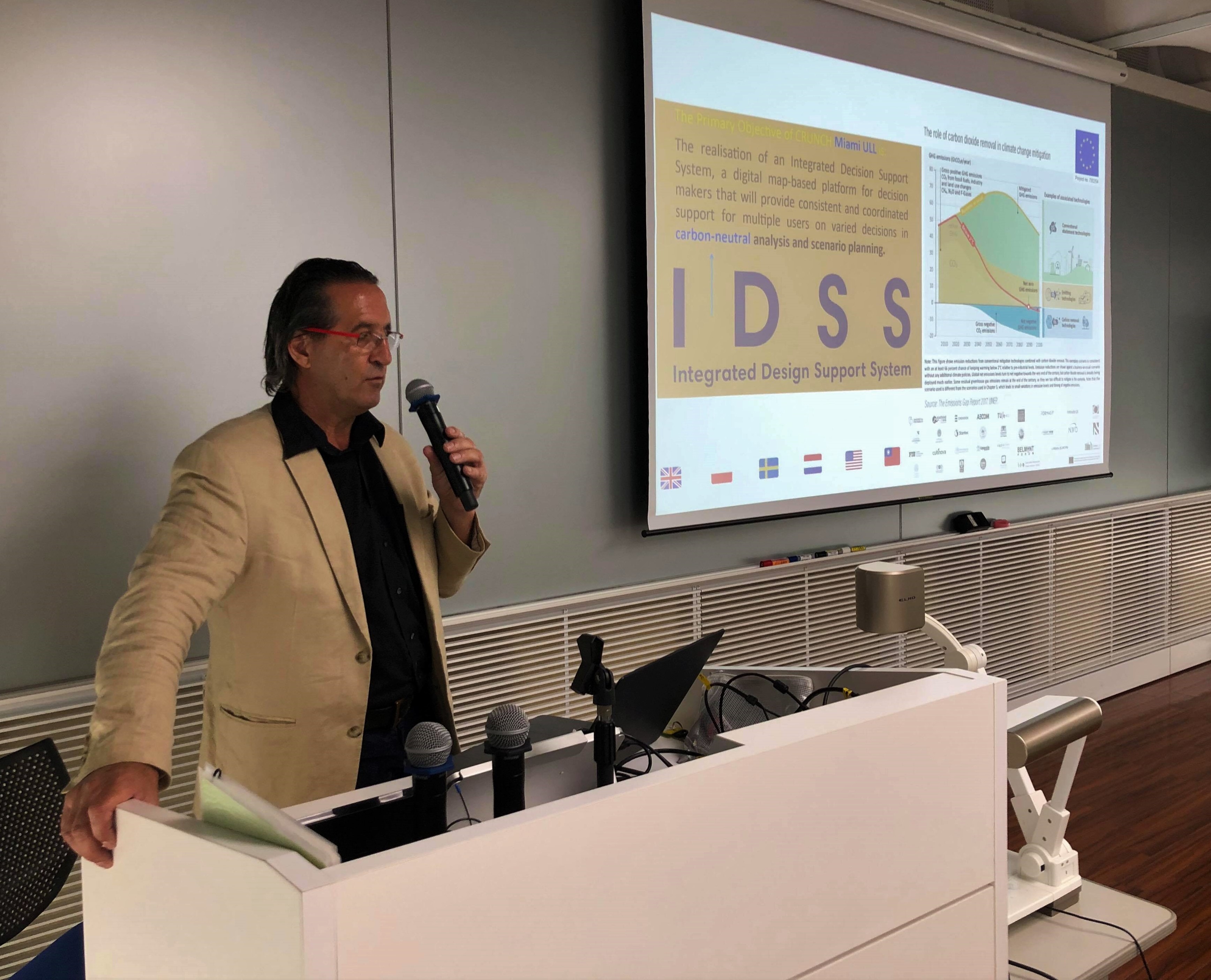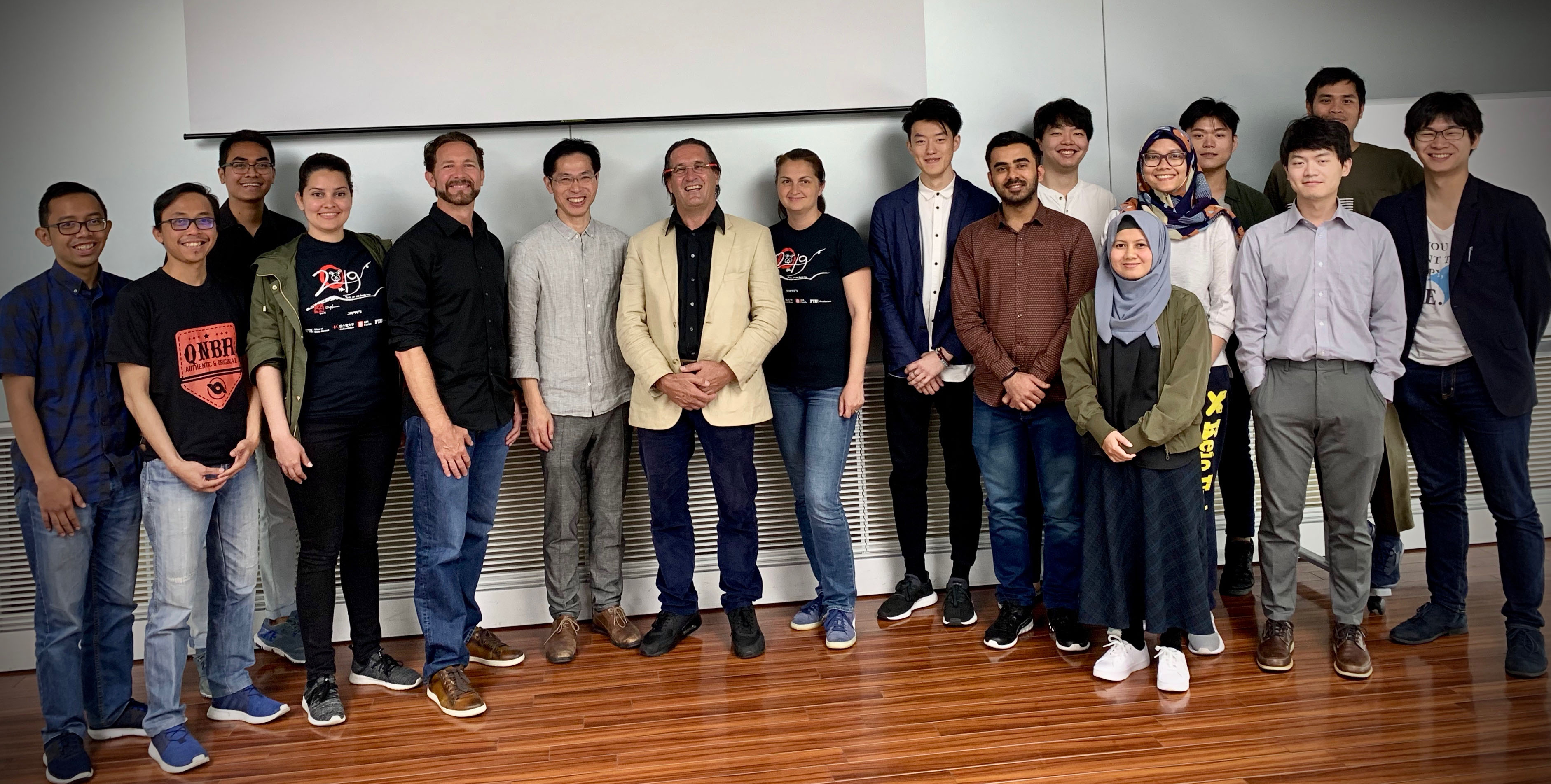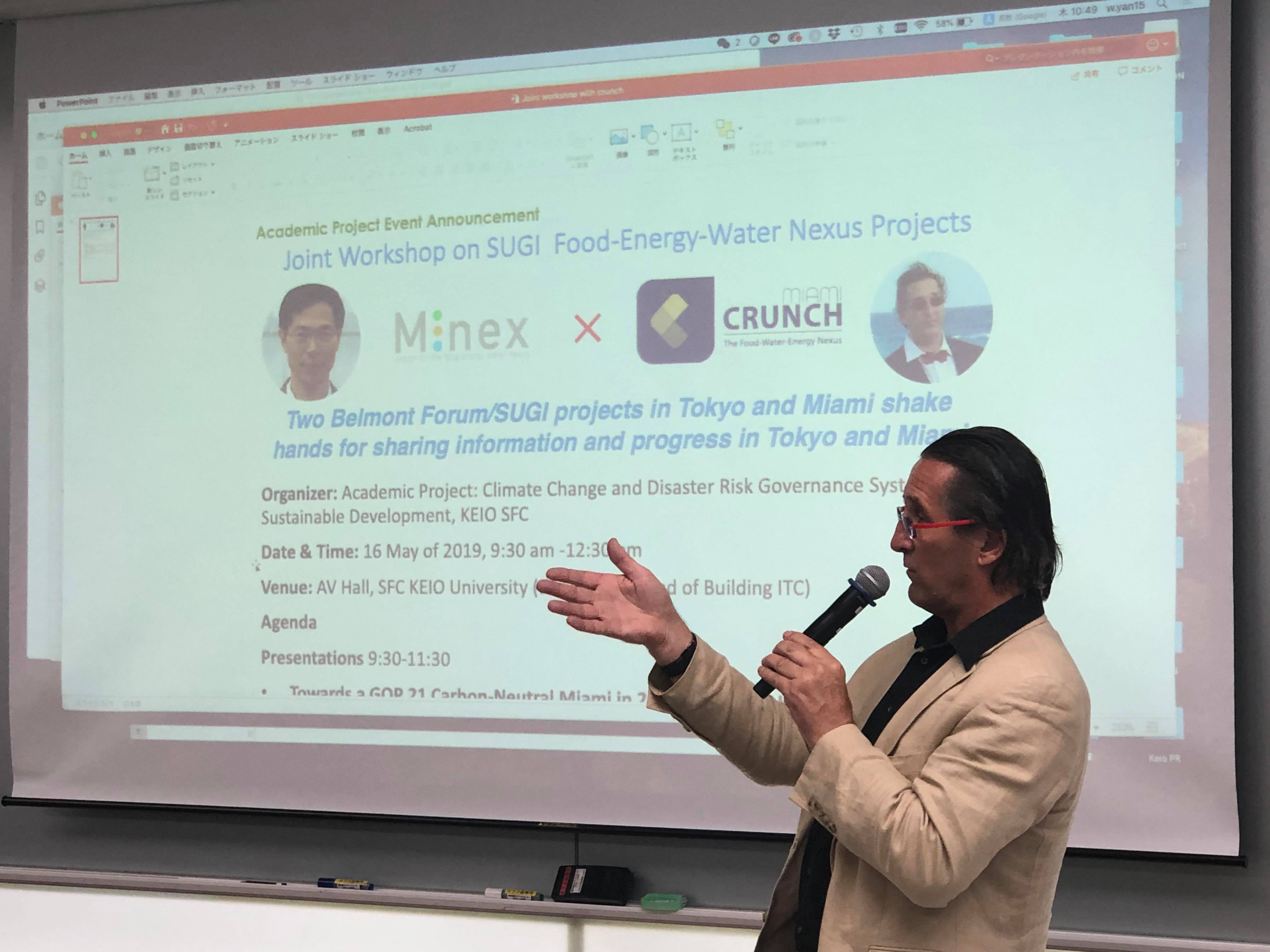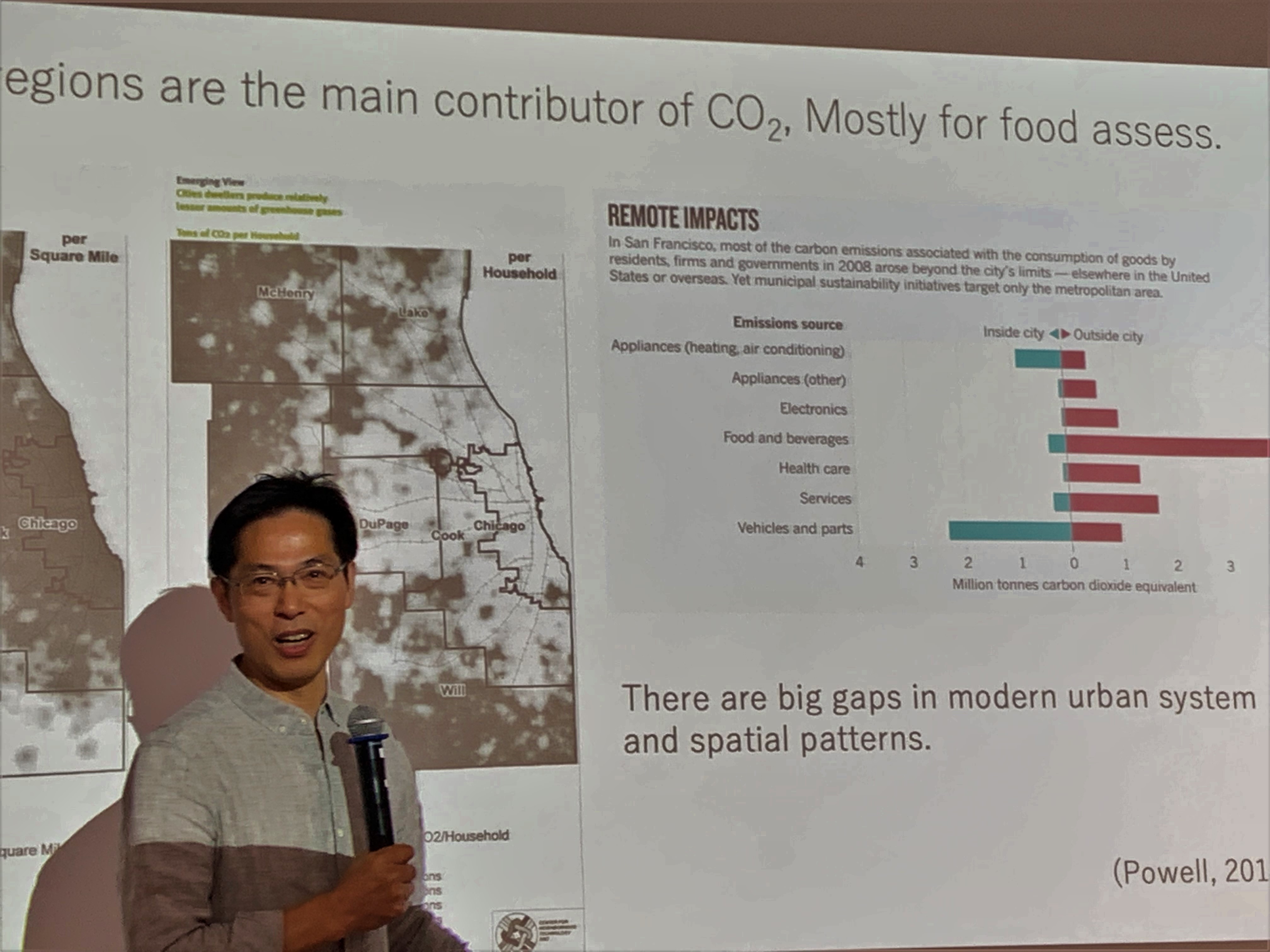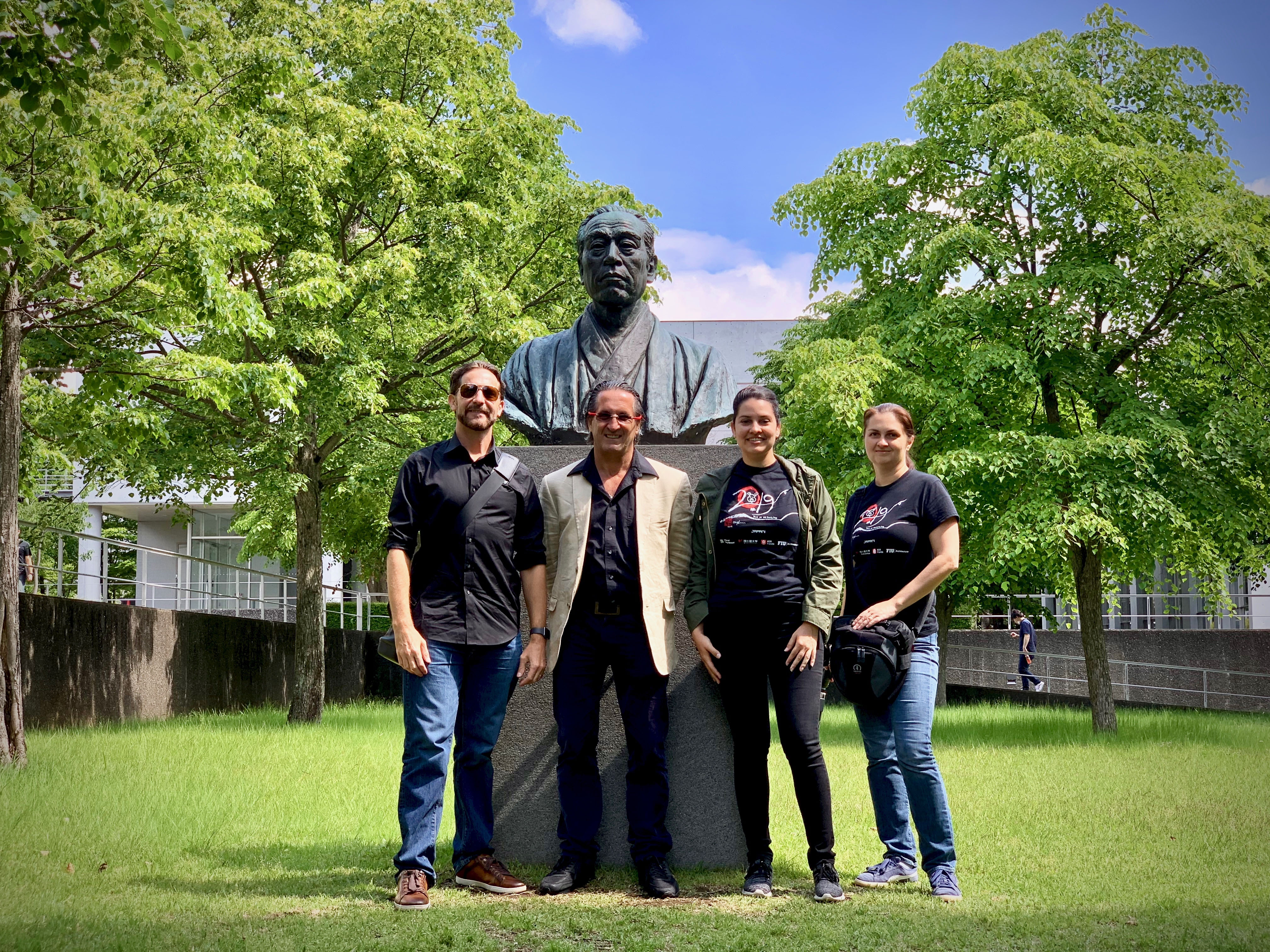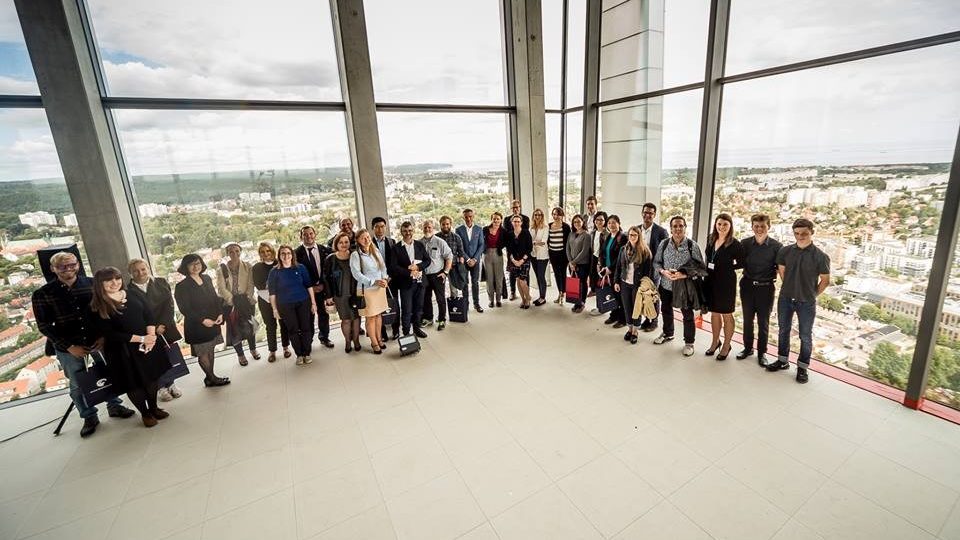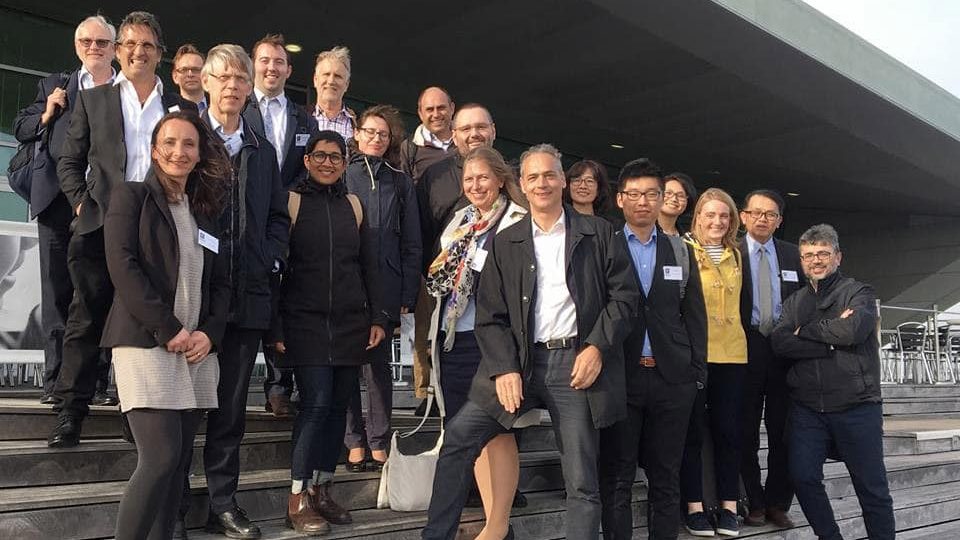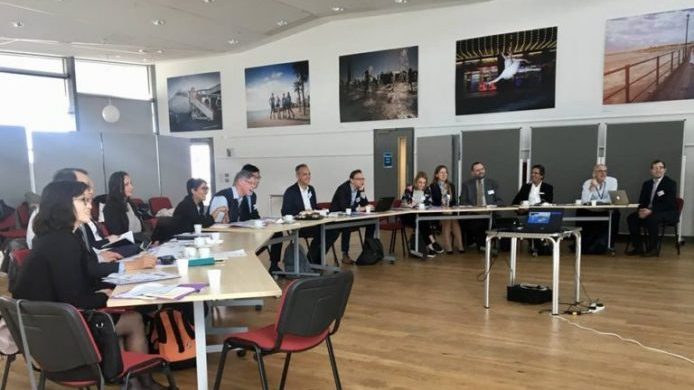PUBLICATIONS
Each semester the CRUNCH Miami research team will publish a volume of work based on design scenarios that have been developed with graduate students at the Urban Living Lab in Miami Beach.
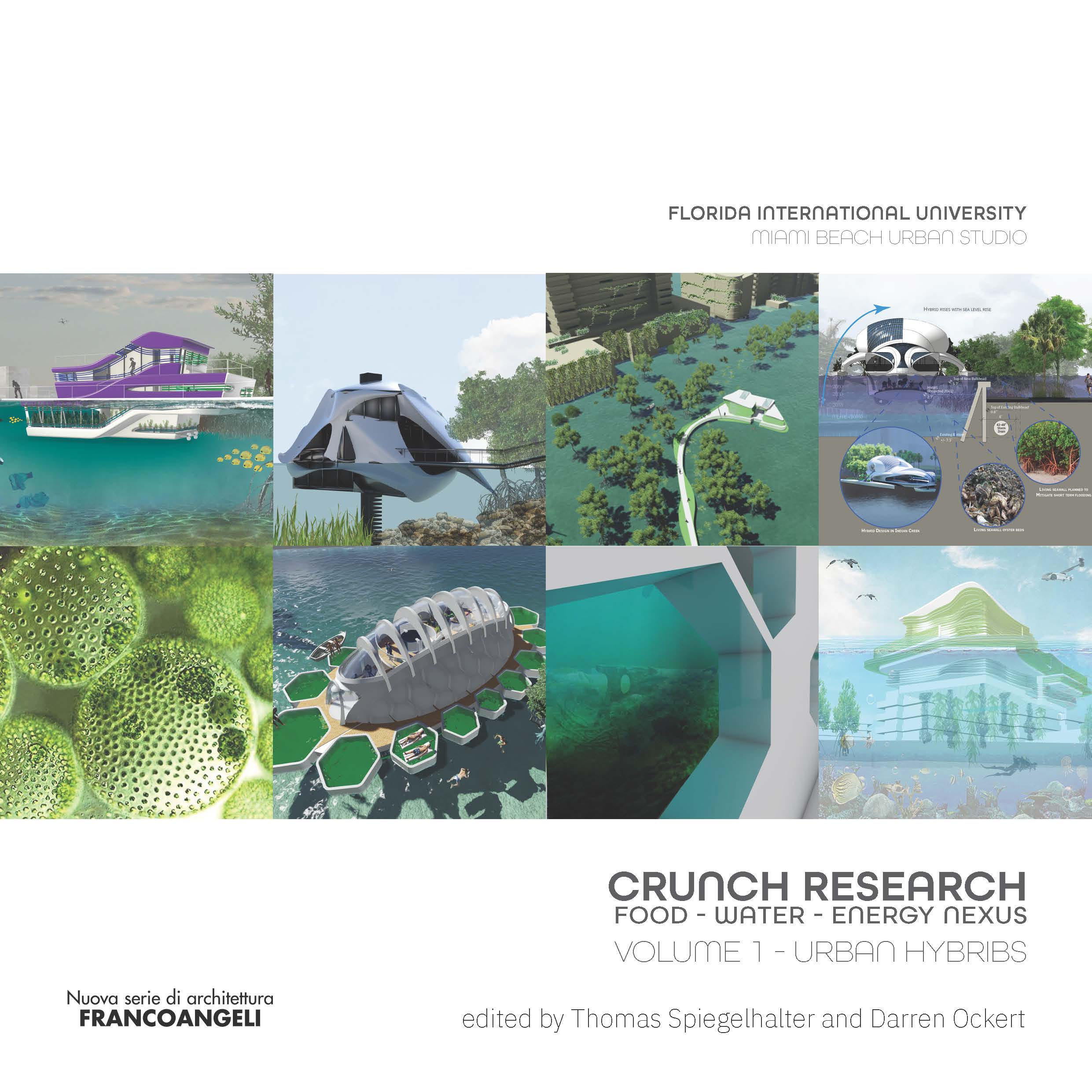
CRUNCH VOLUME 1
URBAN HYBRIDS
Fall 2018 Semester
Available Here
The City of Miami Beach is one of the most climate vulnerable cities on planet Earth. In the coming decades the city will have to face the challenges of sea-level rise combined with yearly threats of hurricanes, king tides, and tropical rain downpours that can dump as much as five inches of water on the city in one afternoon. Under the umbrella of CRUNCH (Climate Resilient Urban Nexus Choices) this first volume looks at designing building structures that can act as hybrids sitting in, out, or under the water with the ability to be self-sustaining.
This book features ten different approaches each envisioning and testing self-sufficient, adaptive, and resilient hybrid structures benchmarked against 100% carbon-neutrality using calibrated Autodesk Building Information Modelling (BIM) through cloud engines in Green Building Studio (GBS), Insight 360, Dynamo-Grasshopper, EnergyPlus, and eQuest toolsets. All research designs were based on approximately 80-year scenarios in which modeling by NOAA, NASA, and reinsurance companies places much of the City of Miami Beach’s existing infrastructure under water. The research focuses on a low-lying area called Lake Pancoast on Indian Creek in Miami Beach that is currently undergoing a massive city-led infrastructure transformation to raise roads, install storm water management systems, and a proposed living shoreline. Based on this “living shoreline” strategy of biotechnological, adaptive ecosystems such as mangroves, oysters and coral clusters, projects were developed as part of a bigger citywide program to combat sea level rise.
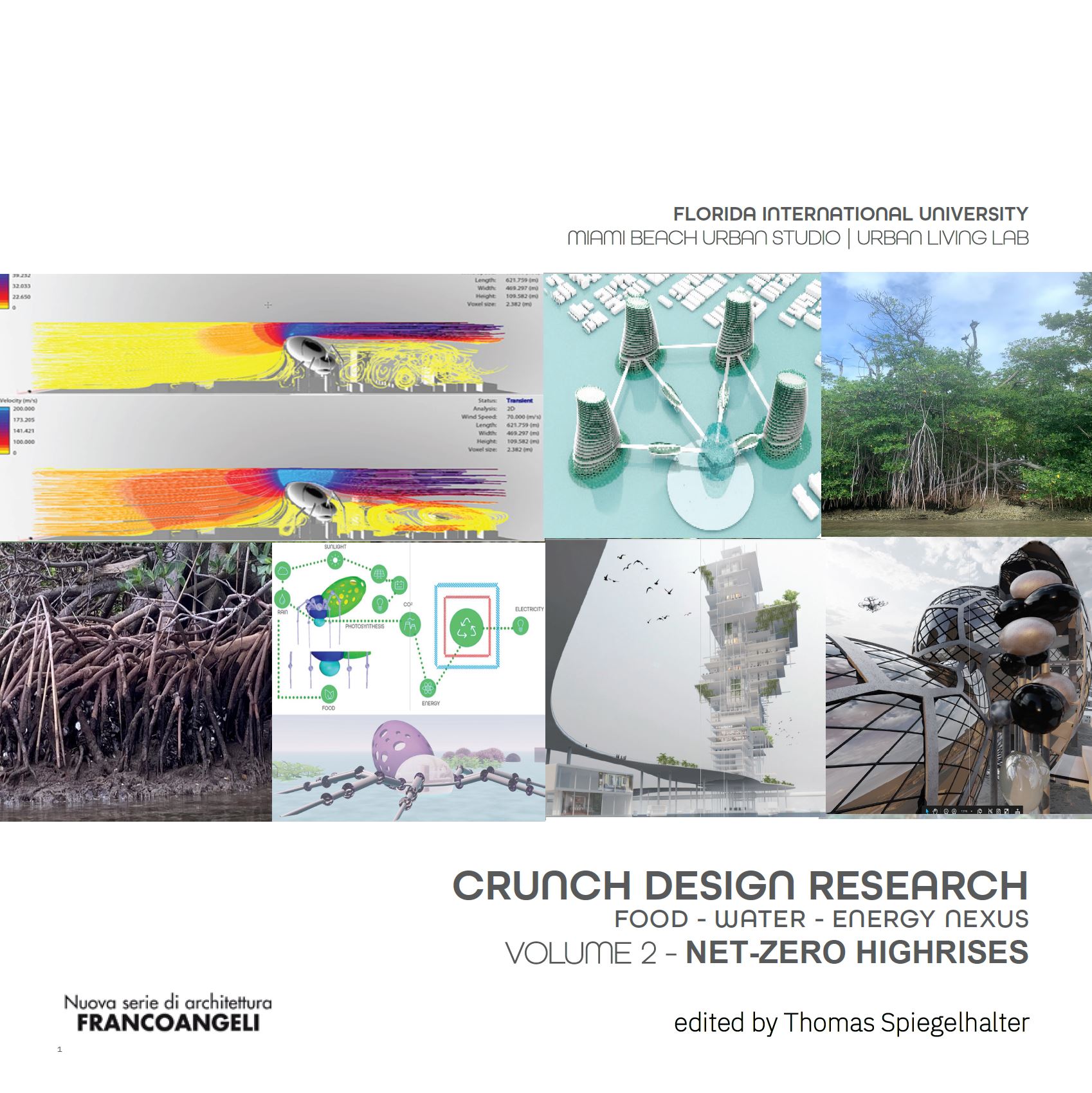
CRUNCH VOLUME 2
NET-ZERO HIGH RISES
Spring, Fall 2019 Semester
Available Here
Greater Miami and the Islands are one of the most climate-vulnerable regions on planet Earth. In the coming decades, the low-lying areas of Miami are set to be swallowed by sea-level rise combined with increased yearly threats of hurricanes, king tides, tropical storm surges and heatwaves. Multiple lineups of powers – municipal, state, federal, and private – debate, strategize, borrow and spend billions to defend the region and its environments with incremental adaptation strategies that do not look at more extended periods until 2100. Not far away from Miami, the strongest Hurricane named Dorian on record hit the Bahamas, wreaking massive devastation on the islands and loss of life with maximum sustained winds of 297 km/h.
Under the three year umbrella of CRUNCH (Climate Resilient Urban Nexus Choices), and the Food-Water-Energy Nexus research, this Second Volume looks at designing adaptive, resilient, biology-inspired, off-the-grid and carbon-positive green-blue infrastructures, self-growing coastal barrier islands and buildings on a timeline from 2019 to 2100. These systems and structures act as dynamic self-powered hybrids that are floating, sitting in, out, or under the water with the ability to be completely self-sufficient. Volume 2 features experimental scenarios of selected design approaches each envisioning and testing self-sustaining, adaptive, and resilient green-blue infrastructures with living shorelines, buildings and neighbourhoods, all benchmarked against 100% carbon-neutrality and the Food- Water-Energy nexus.
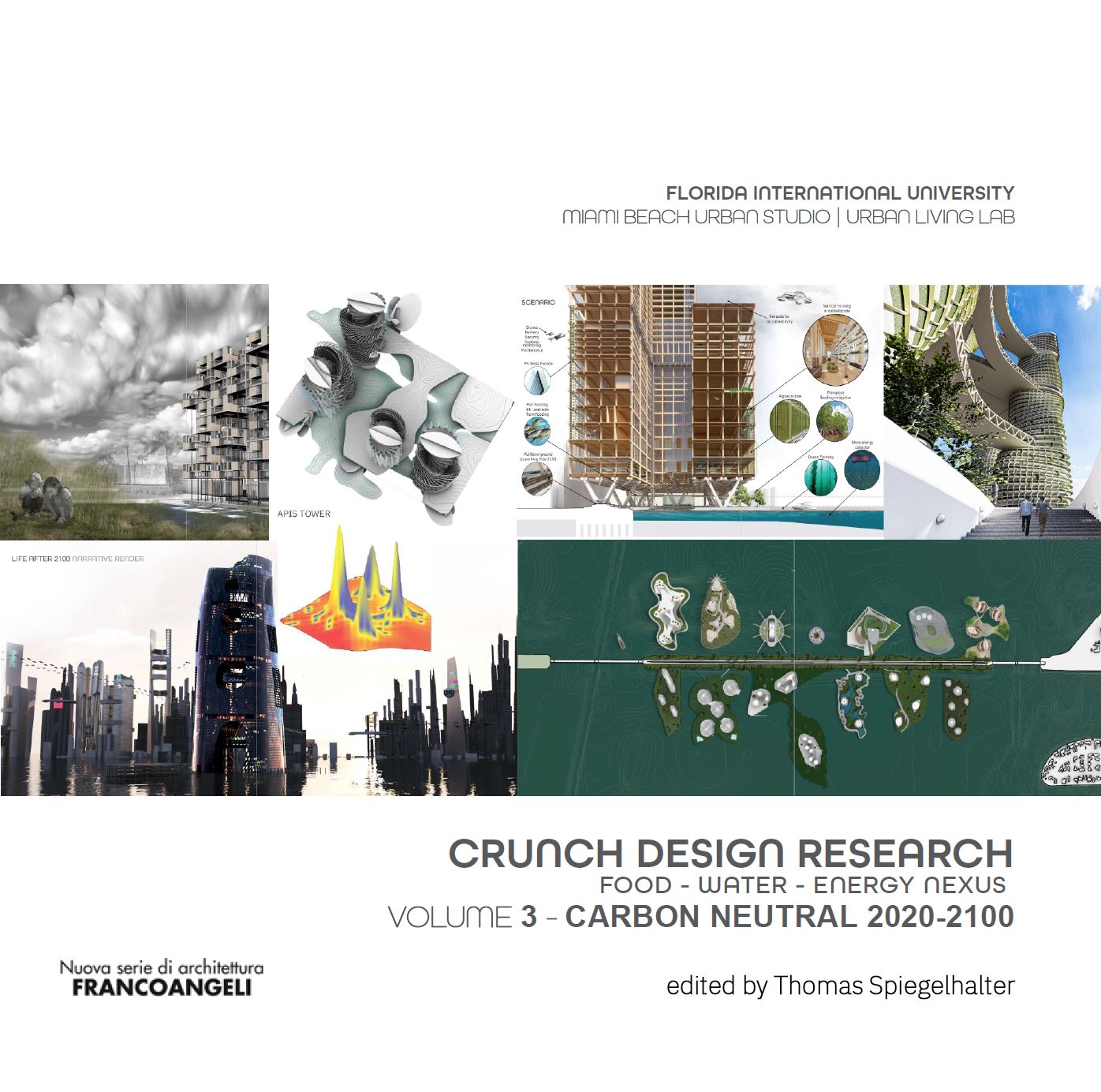
CRUNCH VOLUME 3
CARBON-POSITIVE 2020-2100
Spring 2020 Semester
Available Here
In less than 150 years, our carbon society transformed planet earth. Today more than 50% of ecologies in the world are determined by unsustainable industrialization processes. The latest United Nations Intergovernmental Panel on Climate Change (IPCC) reports showing that we are quickly arriving at points of no return in the warming of our planet. For example, Greater Miami and the Islands is one of the most climate-vulnerable zones. We cannot afford to continue in the same direction; we need new ideas and solutions. In the coming decades, the low-lying areas of Miami are set to be swallowed by sea-level rise combined with increased yearly threats of hurricanes, king tides, tropical storm surges, bay contaminations, coral bleaching and heatwaves.
Under the three year umbrella of CRUNCH (Climate Resilient Urban Nexus Choices), and the Food-Water-Energy (FWE) Nexus research, this Third Volume looks at designing adaptive, resilient, biology-inspired, and carbon-positive green-blue infrastructures and buildings, self-growing coastal barrier islands on a timeline from 2019 to 2100. These systems and structures act as dynamic self powered hybrids that are floating, sitting in, out, or under the water with the ability to be completely self-sufficient, all benchmarked against 100% carbon-neutrality and the FWE nexus. All research designs are based on approximately 80-year scenarios in which modelling by NOAA, NASA, and reinsurance companies placed much of the low-lying areas underwater. The studies include design studio strategies from studio professors Thomas Spiegelhalter and Alfredo Andia, Claudia Busch and Claudio Salazar to identif future climate change impacted sites, disruptive building technologies and systems with dynamically changing cultural identities.
Research Workflows,
Research Studios, Awards




AIA Miami Student Design Award 2022 of the Study Abroad BARCELONA, Spain, Summer Semester Comprehensive Studio at FIU Miami. Congratulations to Barbara Camelia for winning the Category Design Award.
Click Here to Visit:


Department of Architecture Professor Thomas Spiegelhalter, CO-Director of the Structures and Environmental Technologies Lab (SET), exhibited and presented with Liss Werner, former Professor at the Technical University in Berlin, their peer-reviewed research project paper for “METHODS FOR IN-SILICO ENVIRONMENTAL RESILIENCE, 2018-2100” at the International Conference “sbe-BERLIN Sustainable Built Environment D-A-CH” focusing on the Built Environment within Planetary Boundaries from 20.-23.09.2022.
The SBE Series is part of the Sustainable Built Environment Series with ETH Zuerich (Switzerland), KIT Karlsruhe and TU Berlin (Germany), and TU Graz (Austria), a European Series of international research conferences since 2000. For over 20 years, the SBE Series has been supported and organized by the International Initiative for a Sustainable Built Environment (iiSBE) and the International Council for Research and Innovation in Building and Construction (cib). As partner organizations, the SBE Series is additionally supported by the Sustainable Building and Climate Initiative (SBCI) of UNEP, the International Federation of Consulting Engineers (FIDIC) and the Global Alliance for Buildings and Construction (GABC).
All published sbe conference papers are available in the IOP Conference Proceedings: Earth and Environmental Sciences Volume 1078:
Click Here to visit :

US-UK WORKSHOP ON BIOSENSING-ENABLED, WELLBEING-CENTRIC SUSTAINABLE BUILT ENVIRONMENT ECOSYSTEMS at the Nottingham Trent University, UK, from October 26-28, 2022. UK Researchers: Derek Clements Croome, Reading University, Quinggang Meng, Loughborough University, Ming Sun, Nottingham Trent University, Yangang Xing (Yan) Nottingham University. US Researchers: Yong Tao, Cleveland State University, Sez Atamturktur Russcher, Penn State University:, David Fannon, Northeastern University, Thomas Spiegelhalter, Florida International University, Hiba Baroud, Vanderbilt University, Juan C. Ordonez, Florida State University, Yimin Zhu, Louisiana State University, Issac Cho, Utah State University, Stephen Bird, Clarkson University, Nina Sharifi, Syracuse University, Jorge E. González, The City College of New York, Huanyu Larry Cheng, Penn State University, Wangda Zuo, Penn State University

Two Presentations at the World Conference for Science, Technology and Engineering, Mechanical Engineering & Sustainability and the Environment conferences (STECONF) in Berlin from 9th – 11th December 2022… on “AI-ML assisted Generative GA/EA Design Workflows and FEA Optimizations on 3d-robot printed bridges (additive manufacturing) and carbon-positive buildings.”


FIU D10 CRUNCH architecture graduate students won two International Miami Floating Housing Idea Competition Awards!The team of Francis Castro, Darlene González and Ana Lahoud in my FIU D10 Spiegelhalter Miami Beach Urban Studio won an Honorable Mention with MARE.VIVUM, and the team of Anyela De Las Traviesas, George López, Dairon Riesgo and Maryson Winklaar in Prof. Biayna Bogosian FIU Campus D7-8 Studio won a Director’s Choice Award with THROUGH TIME in Fall 2022

